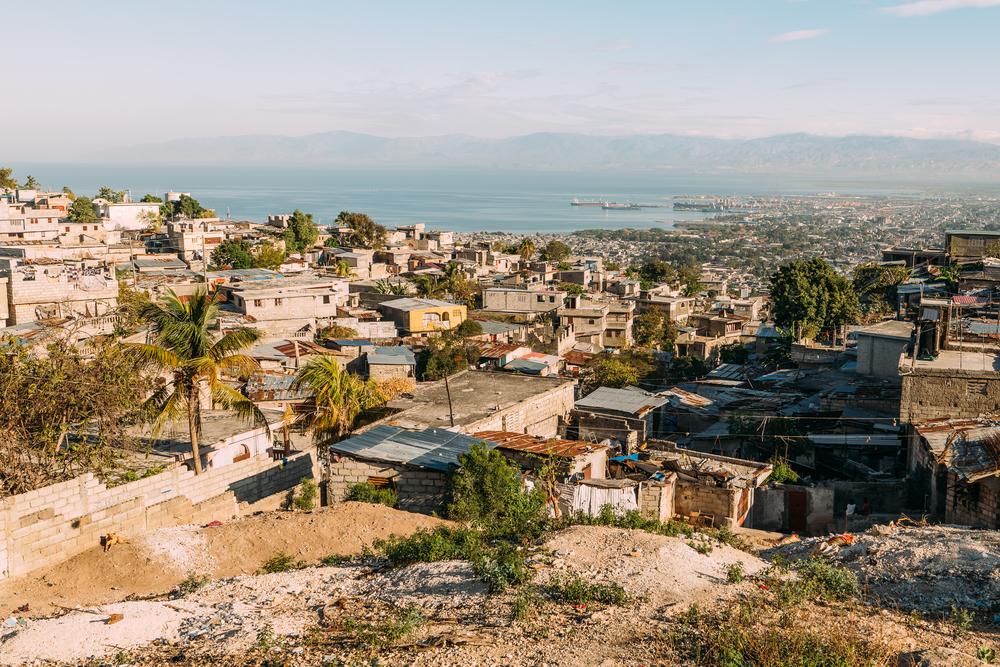Haiti: Violence and Chaos Causes an Explosion of Casualties
Doctors Without Borders (MSF) is scaling up its medical activities in Port-au-Prince, Haiti, to care for the mounting number of people injured in the chaos that has engulfed the Haitian capital since the February 28 announcement that general elections may be postponed as late as August 2025.
The violence has taken on a new dimension since last weekend, causing an explosion in the number of casualties and triggering the government’s declaration of a state of emergency. Faced with this further deterioration in the security situation, the number of wounded – many of them women, children and older adults – requiring treatment by MSF teams has risen sharply.
"Insecurity in Port-au-Prince has also contributed to an increase in sexual violence in recent years, and MSF teams fear that these figures will rise further as the number of displaced people continues to grow."
"The 50 beds in our hospital in Tabarre have all been occupied since the beginning of February, but on February 28, the situation worsened, and we had to increase the bed capacity to 75," said Mumuza Muhindo Musubaho, MSF head of mission. "We are receiving an average of five to ten new cases a day, and we are working at the limits of our capacity."
.jpg)
While several local hospitals have stopped functioning, MSF has reopened its emergency centre in the Turgeau district two weeks earlier than planned to increase its medical activities and reduce pressure on its existing facilities. On March 4, MSF also opened its new hospital for the injured in the commune of Carrefour, with an operating theatre and 25 beds.
MSF is currently looking for additional hospitals where it could be possible to work in different areas of Port-au-Prince, as insecurity and improvised roadblocks are preventing ambulances from transporting patients.
Thousands of people have fled their homes in recent days due to clashes in their neighbourhoods, while current high tensions have led MSF to suspend its mobile clinics in several sites temporarily. Insecurity in Port-au-Prince has also contributed to an increase in sexual violence in recent years, and MSF teams fear that these figures will rise further as the number of displaced people continues to grow. Last year, we provided care to over 4,000 survivors of sexual assault.
Many parts of the city are currently in the throes of violence, which is the culmination of a political, economic and social crisis that has plagued the country since the assassination of its former President Jovenel Moïse in 2021. The country's main port is currently difficult to access due to tension and insecurity in most parts of the city. The international airport has also been closed for several days.
.jpg)
"We are also worried because our stock of medical supplies is extremely difficult to access, not only because of the situation at the port but also because it is impossible to continue with the administrative procedures for customs clearance," Musubaho said. "We fear we will run out of medicines and medical supplies, which are absolutely essential to meet the enormous needs we are facing at the moment."
In late 2022, the country was virtually paralyzed for weeks when a wave of demonstrations led to the declaration of "peyi lok" or "country lockdown." This lockdown hampers movement, economic activity, water and fuel supplies and forces many health facilities to suspend their activities. Port-au-Prince's healthcare system is again under enormous pressure, struggling to meet needs.
Other MSF Activities in Haiti
About Doctors Without Borders (MSF)
Doctors Without Borders (MSF) is a global network of principled medical and other professionals who specialise in medical humanitarian work, driven by our common humanity and guided by medical ethics. We strive to bring emergency medical care to people caught in conflicts, crises, and disasters in more than 70 countries worldwide.
In South Africa, we run a non-communicable diseases (NCDs) project in Butterworth, Eastern Cape province, to improve care for patients with diabetes and hypertension. The project focuses on improving screening, diagnosis, management and prevention through advocacy, research, health promotion, training and mentorship of Community Healthcare Workers (CHWs).
At the end of 2023, we handed over our Tshwane Migrant Project to authorities and a local Community-Based Organisation after building the capacity to work with undocumented populations. The project provided access to medical care for undocumented people and migrants and actively advocated for continued access.
After 12 years of operations, we closed our HIV/TB project in Eshowe, KwaZulu-Natal province. The project’s community-oriented approach helped to increase the integrated management of HIV, TB, diabetes and hypertension through nine community-based ‘Luyanda’ sites, which were successfully handed over to the DoH. Many achievements were made in the task-shifting of TB health promotion activities to teachers in schools, and we shared valuable feedback with the DoH on the decentralisation of Drug-Resistant Tuberculosis (DRTB) services to the primary healthcare level.
After 22 years of activities and campaigning, we closed our HIV and TB project in Khayelitsha, Western Cape, in 2020.